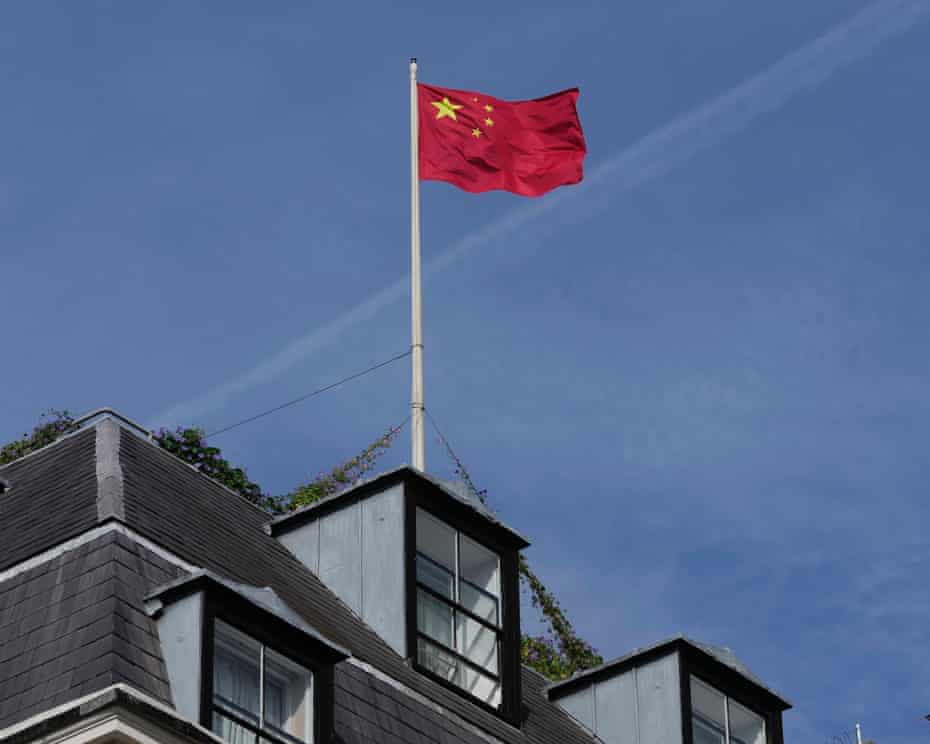China is considering lifting the sanctions it imposed on a group of UK parliamentarians and other individuals in 2021, in what appears to be the latest sign of warming diplomatic relations between Beijing and London.
According to two UK government sources familiar with ongoing discussions, the Chinese government is actively reviewing the sanctions, which were originally introduced in retaliation for what Beijing described as “lies and disinformation” surrounding human rights abuses in Xinjiang.
Asked about the potential policy reversal, a spokesperson for the Chinese embassy in London stated: “China has always attached importance to developing relations with the UK. Currently, UK-China relations are showing a positive momentum.
“Exchanges and dialogues between the UK and China at all levels and in all fields will help enhance mutual understanding and trust between the two sides, and will also help promote the continuous development of bilateral relations and practical cooperation, which benefit the two peoples.”
The development follows a week of high-level diplomatic engagements, including visits from senior Chinese officials such as Vice-Premier He Lifeng and Commerce Minister Wang Wentao, who were in London for trade talks. Lifeng met with Chancellor Rachel Reeves, while Wang held discussions with Business and Trade Secretary Jonathan Reynolds.
Separately, Liu Jianchao, head of the international department of the Chinese Communist Party and one of Beijing’s most senior diplomats, undertook a three-day visit during which he met Foreign Secretary David Lammy and National Security Adviser Jonathan Powell. None of the meetings were publicly announced by the UK government.
Liu also took part in a closed-door session with British MPs hosted by the Great Britain China Centre, an arm’s-length government organisation. During the meeting, the issue of China’s sanctions against UK parliamentarians was reportedly raised multiple times. Liu’s presence, however, sparked criticism due to his association with China’s global repression campaigns.
It remains unclear whether Beijing intends to lift all the sanctions it imposed in 2021 or only some. Among those sanctioned were five Conservative MPs, former party leader Iain Duncan Smith, Tom Tugendhat, Nusrat Ghani, Neil O’Brien and Tim Loughton, as well as two peers: crossbencher David Alton and Labour’s Helena Kennedy. Several of those targeted are prominent members of the Inter-Parliamentary Alliance on China.
Also sanctioned were Newcastle University academic Jo Smith Finley, who specialises in Uyghur studies, and barrister Geoffrey Nice KC, chair of the Uyghur Tribunal that examined alleged atrocities in Xinjiang.
The 2021 sanctions prohibited all affected individuals from entering China, Hong Kong and Macau, froze any assets held within China, and barred Chinese citizens and institutions from engaging with them commercially.
China’s sanctions
The Chinese sanctions came in response to the UK government’s decision to impose sanctions on Chinese officials implicated in human rights violations against the Uyghur Muslim population in Xinjiang. UK officials have insisted there is no possibility of their sanctions being lifted in response to a gesture from Beijing.
The potential thaw in relations mirrors a recent diplomatic shift in China’s stance towards the European Union. In April, Beijing lifted sanctions on five Members of the European Parliament (MEPs) and the European Parliament’s Subcommittee on Human Rights. That move was widely interpreted as part of a charm offensive to rekindle trade negotiations with Brussels, particularly following the destabilising effects of US President Donald Trump’s tariffs.
Although there is no prospect of a UK-China trade deal on the horizon, diplomatic talks between the two countries are expected to intensify in the coming months. Business Secretary Jonathan Reynolds is being lined up to visit Beijing later this year to revive a major trade dialogue, while Prime Minister Keir Starmer is also being considered for a bilateral trip in the autumn.
Labour, which had previously pledged to recognise the treatment of Uyghurs in Xinjiang as genocide, has adopted a more pragmatic tone in government, signalling a shift towards closer economic ties with China in pursuit of growth.
Meanwhile, Beijing is still awaiting a decision from UK ministers regarding its proposal to build a vast new embassy complex near the Tower of London. The plan, due to be approved or rejected this summer, has attracted scrutiny, with the US government reportedly raising security concerns.
During his recent visit to London, Liu Jianchao also met with former Prime Minister Tony Blair, who maintains an advisory role to various UK and US figures on foreign policy and is expected to travel to China later this year.



